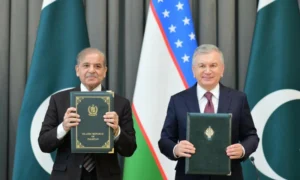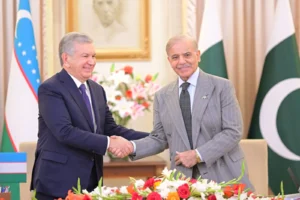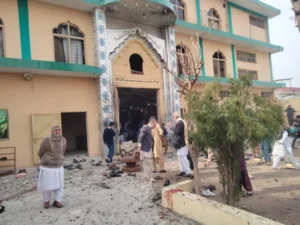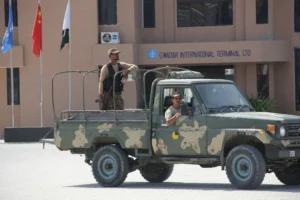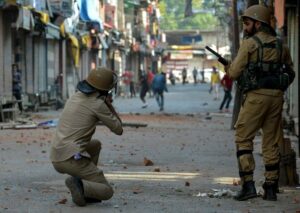The recent detention of Abdul Sami Ghaznawi, a religious cleric reportedly aligned with the Taliban’s past ideological circles, by the Islamic Emirate of Afghanistan (IEA) marks a rare but profoundly significant development in Afghan-Pakistan relations. This action, coming amidst persistent regional tensions, is being closely scrutinized as a potential indicator of shifting priorities within the IEA’s leadership. Ghaznawi’s issuance of a fatwa explicitly calling for jihad against Pakistan prompted swift and decisive action from the Afghan authorities. This response signals a notable departure from the permissive or ambiguous stances that once allowed anti-Pakistan rhetoric to thrive unchecked under the guise of religious legitimacy. Historically, elements within Afghanistan have leveraged religious decrees to incite militancy, creating significant cross-border challenges for Pakistan. The IEA’s move against Ghaznawi, therefore, represents a critical moment, potentially drawing a clearer line against the weaponization of religious edicts for geopolitical ends.
Strategic Implications for Afghan-Pakistan Relations
This step must be viewed in both symbolic and strategic terms. Symbolically, it demonstrates the Taliban government’s willingness to directly confront influential clerical voices, even those with historical ties to their movement, when they invoke religion to inflame regional hostilities. This public rebuke of a prominent figure underscores a desire to project an image of a more responsible and pragmatic governing entity. It suggests an acknowledgment that unchecked radical rhetoric can destabilize not only external relations but also internal governance and legitimacy.
Strategically, Ghaznawi’s detention reflects a possible recalibration of Afghan priorities.
The IEA is operating under immense international scrutiny, facing severe economic hardships, and grappling with the imperative of securing international recognition and aid. These pressures demand a greater emphasis on regional cooperation over confrontation. By acting against an individual promoting anti-Pakistan sentiment, the IEA might be signaling a commitment to de-escalate tensions and foster a more stable environment conducive to attracting much-needed investment and humanitarian support. This strategic pivot highlights a growing understanding within the IEA that regional stability is paramount for their own long-term survival and governance objectives.
Afghan-Pakistan Relations: Challenges and Outlook
Pakistan, long frustrated by the unhindered use of Afghan soil for cross-border militant messaging and recruitment, may view this act as a cautiously welcome signal. Islamabad has consistently called for the IEA to take decisive action against all groups threatening Pakistan’s security from Afghan territory. While this arrest could be seen as a positive step towards addressing those concerns, it would be premature to equate one isolated incident with a fundamental, structural policy shift. Elements hostile to Pakistan still undeniably exist within Afghanistan, many of whom operate with varying degrees of independence from the formal Taliban hierarchy. The true challenge lies not in reacting to singular incidents, but in whether the IEA can establish a consistent, overarching framework to curb such narratives and dismantle related networks, rather than merely reacting when specific incidents gain significant attention.
Internal Dynamics Affecting Afghan-Pakistan Relations
Moreover, the Taliban’s response to internal dissent and ideological divergence will be closely watched, not only by Islamabad but by all regional players assessing the Emirate’s long-term ability to govern a fractured ideological landscape. The IEA’s internal dynamics are complex, involving various factions with differing views on foreign policy and religious interpretations. How they manage these internal pressures, particularly when they clash with state-level diplomatic objectives, will be a key determinant of their stability and reliability as a governing force. For now, the Ghaznawi detention sends an important message: the weaponization of fatwas for geopolitical ends will no longer be tolerated, at least publicly, under the current administration.
Paving the Way for Stable Afghan-Pakistan Relations
The road to genuine, enduring regional stability, however, requires more than episodic detentions. It demands the implementation of robust institutional safeguards, consistent enforcement of policies against hostile rhetoric, and a clear, unwavering political will to prioritize constructive engagement over ideological entrenchment. If this action against Abdul Sami Ghaznawi is indeed a sincere first step in that direction, then it certainly deserves acknowledgement from the international community and regional partners. Yet, its durability, and the ultimate sincerity of the IEA’s commitment to this new approach, remain to be rigorously tested through sustained action and verifiable results.
Also Read: TTP Relocation Deal: Pakistan and Taliban Move Toward Lasting Peace


